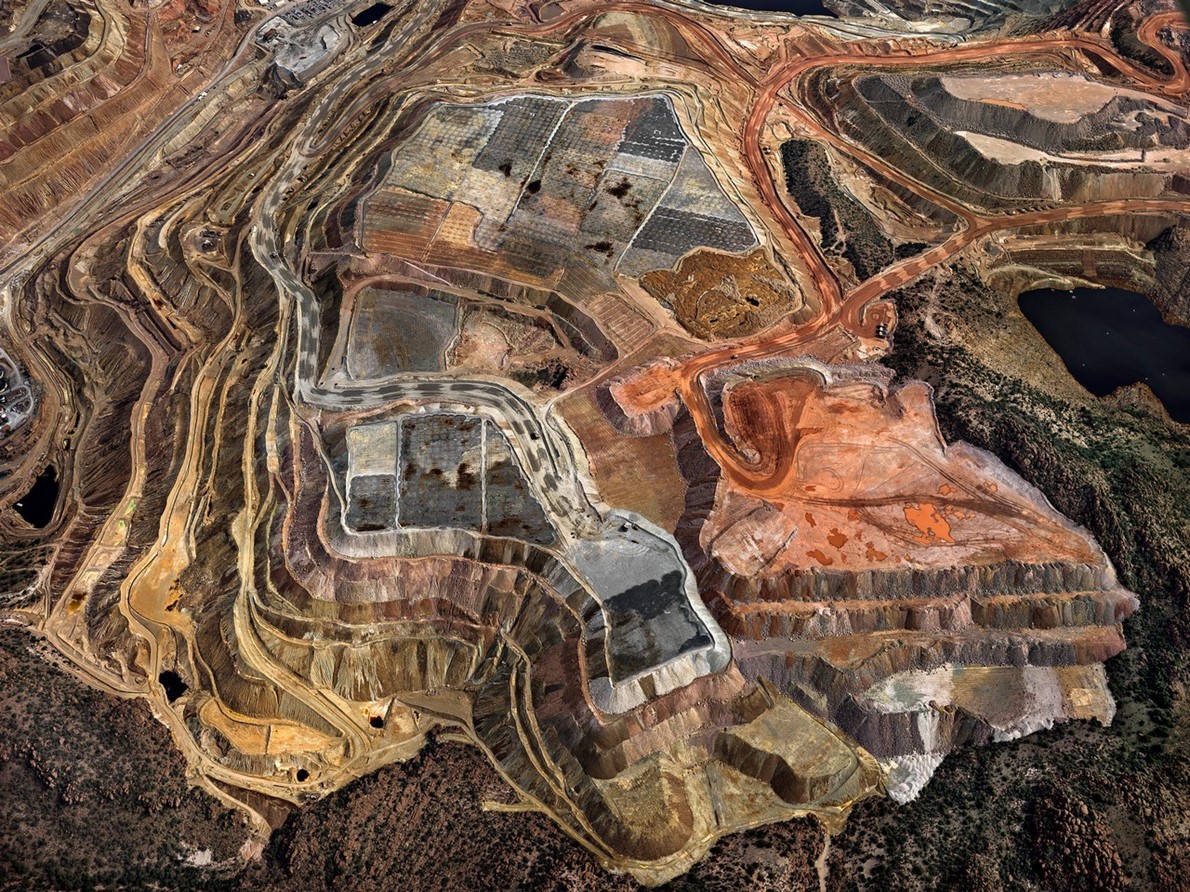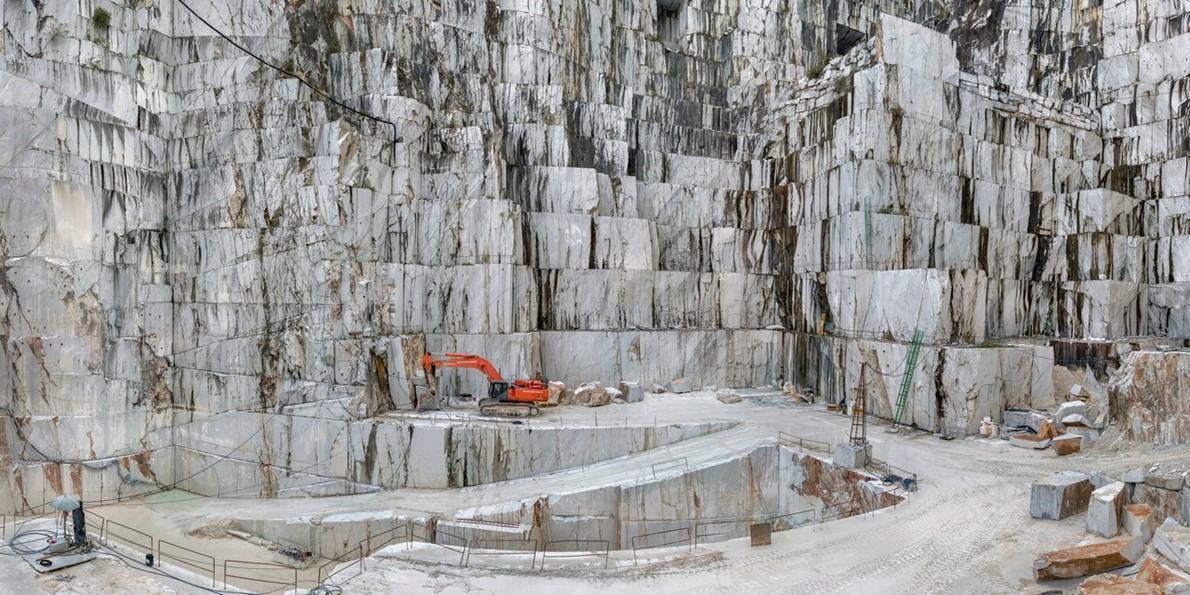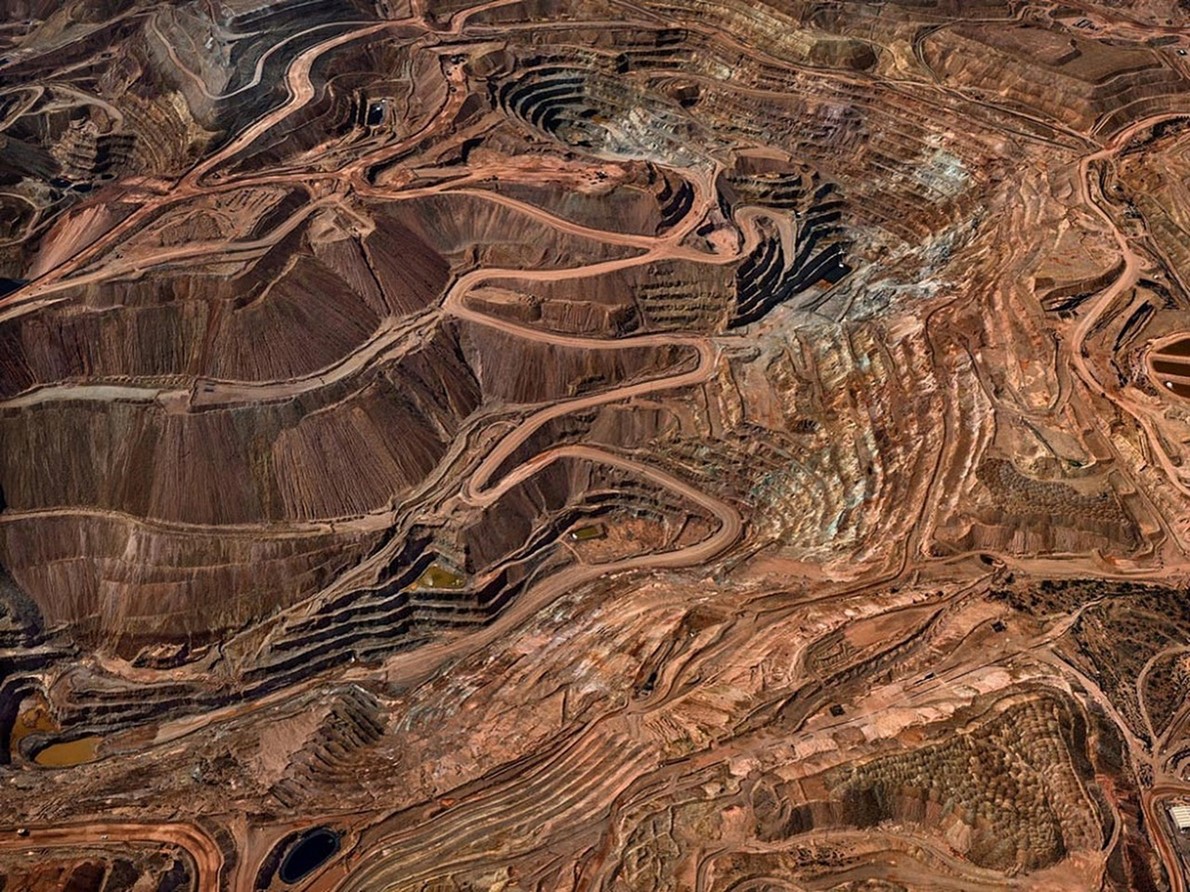This film, screened yesterday as part of Films about Humans and Our Planet,
organized by the
Royal Film Commission in cooperation with Greener Screen and
with the support of Abdul Hameed Shoman Foundation, is a disturbing odyssey
that achieves the paradox of making beautiful the disaster wreaked on nature by
humanity.
اضافة اعلان
The three Canadian
filmmakers — Jennifer Baichwal, Nicholas De Pencier, and Edward Burtynsky — aim
to show the ecological disaster that awaits us, denouncing unlimited mining,
warning about the disappearance of animals, and the warming of the oceans, all
issues deserve a movie by themselves.
Their chronology of
geology and the deleterious influence of man on the ecosystem is too complex a
subject to be summed up in an hour and a half of projection. Yet, we come out
frozen and disconcerted that our self-destructive drive can so reshape the
contours of our planet.
The three forged
ties long before co-directing Anthropocene: Baichwal and de Pencier are husband
and wife, and
Burtynsky, known for his photos of industrial landscapes, was the
subject of Manufactured Landscapes, a documentary directed by Baichwal in 2006,
and made with her, in 2013, Watermark, a documentary on the footprint of water
on the planet, produced and filmed by de Pencier.

The film begins
with an endless fire, filmed as close as possible and looking as if it were
emerging from the heart of the earth. Little by little, the fire crushes the
tusks of elephants that men unload from trucks.
The camera strives
to film sublime landscapes, in the manner of Yann Arthus Bertrand, except that
these magnificent colored and fractured expanses are the result of the
extraction of metals pushed to its maximum.
The main ambiguity lies in the way the three
filmmakers sublimate, thanks to the camera, the worst of our humanity. The
immensities’ the filmmakers fly over resemble bodies or abstract paintings. In
reality, the aesthetic point of view is total provocation.
The filmmakers
adopt an iconoclastic point of view, like of the
Chinese artist who ends the
film and who fashions absolutely magnificent sculptures on elephant tusks,
conceding, not without provocation or stupidity, that he does not mind the
sacrifice of elephants.
The camera films
the monstrosity. It lives in gigantic machines, stuffed with electronics, which
ravage the earth in search of precious metals. It is also lodged in this
Chinese coast that workers raise with concrete tubes to ward off the inevitable
rising waters.
The trio of Canadian directors invites us on a journey around the planet — six continents, 20 countries — to see how, all over the world, man has taken over nature, affected it, transformed it, abused it, and ransacked it.
In short, humanity is drowning in its own stupidity.
The filmmakers
observe a very ancient land, which humans have destroyed in a few thousand
years. Anthropocene then becomes a plea for collective awareness, namely that
everyone can contribute to the survival of the planet.
The destruction of
nature
Anthropocene: a word that recently appeared in our vocabulary and which,
unfortunately, is not going to go away. The human epoch. Indeed, if officially
we are still in the geological period called the Holocene, more and more
scientists consider that, since the arrival of the industrial revolution at the
end of the 18th century, the impact of man on nature took precedence over the
geological and natural forces that had prevailed until then. For them, we have
therefore entered the era of the human being.
The trio of
Canadian directors invites us on a journey around the planet — six continents,
20 countries — to see how, all over the world, man has taken over nature,
affected it, transformed it, abused it, and ransacked it.
There is a lot of
talk, and rightly so, about climate change caused by greenhouse gases and
deforestation. Of course, the film talks about it, but it also shows us many
other aggressions committed by man toward nature, whether in the form of
extractions, dumps, extension of cities and actions that lead to the extinction
of animal species. An example: every year, 60 to 100 billion tonns of materials
are extracted from the earth, or about 30 kilograms per day, on average, for
each inhabitant of the planet.

A poetic,
contemplative and aesthetic film
When viewing
Anthropocene, we are surprised, given what the film describes and the message
it wants to convey, to find ourselves faced with a poetic, contemplative and
very aesthetic film, with shots that sometimes make us think of paintings and
at others to album covers of psychedelic music from the 1960s and 1970s.
This aesthetic
research is the choice of the directors and, for some, it will represent the
main flaw of the film: why so much beauty when we talk about destruction, when
we show this destruction? Is this approach not a bit pretentious?
It is in the
combination of verbal explanations and images that we can find the answer:
explanations that teach us a lot without being overly didactic, often
accompanying images of great beauty,
Verbal explanations
The explanations we hear in the film are of two kinds: in the countries
visited, natives give them, in English or in the language of their country.
Then, to accompany the entire film, a voiceover adds other elements. In the
original version of the film, in English, this voice-over is that of the
Swedish actress Alicia Vikander. In the French-language Canadian version, the
voice of Pascale Bussières was chosen, while for the French version broadcast
in our country, it is another Canadian, Charlotte Le Bon, that we hear.

For some, stuffing
the film with images of great beauty to show the destruction of the planet
carried out by the human species is to show a lot of pretension. For others,
this beauty makes the crimes committed against nature even more monstrous. In
any case, in the current environmental context, Anthropocene: The Human Epoch
is an important and necessary film.
Read more Entertainment
Jordan News



